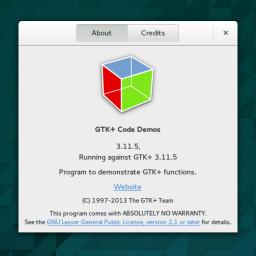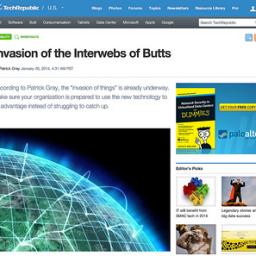
Once hailed as the most free and widest used X toolkit, the future of GTK+ now looks dire. The gnome developers have
essentially highjacked the latest version, GTK3, and are actively destroying all ability of non-gnome users from using this once popular toolkit. I find this very unsettling, as I have developed a number of my own desktop applications using GTK+ through all three of its major versions. I've always preferred GTK over QT, but with some of the recent changes, I'm starting to change my mind.
Of course, I'm
hardly alone in this opinion as many other projects have abandoned GTK in the recent months. Take Audacious, for example. This GTK music player has had increasing troubles with the gnome developers
screwing things up. So many troubles that they are now planning on switching toolkits rather than further deal with the upstream management. Although they had a functional GTK3 port, they've officially
reverted back to GTK2 until they can properly refactor their entire program into QT.
I've been a happy user of the XFCE desktop environment for the last few years. This light and easy to use UI gets out of the way and just plain works. However, the interface toolkit of XFCE is tied to GTK2 and its authors have no clear upgrade path. A similar project, LXDE, has also seen the writing on the wall and are well into a
rewrite project that switches their preferred toolkit from GTK to QT.
Although the "G" in GTK stands for "GIMP" this popular image manipulation program has yet to release a GTK3 version. Even Linus Torvalds' own pet project, Subsurface, has recently
abandoned GTK for QT. Is the future of GTK+ programs doomed? Can a revival project, such as
Mate, takeover maintenance of the GTK toolkit for the rest of us? (let the gnome people screw up their own fork)
 Steven J. Vaughan-Nichols has just reviewed the recently released LibreOffice 4.3, and gives it a thumbs up. It has made huge strides since the OpenOffice.org - LibreOffice "divorce" and this version includes improvements in office format interoperability, spreadsheet performance and usability, comment management, and the arrival of 3D models in Impress.
Steven J. Vaughan-Nichols has just reviewed the recently released LibreOffice 4.3, and gives it a thumbs up. It has made huge strides since the OpenOffice.org - LibreOffice "divorce" and this version includes improvements in office format interoperability, spreadsheet performance and usability, comment management, and the arrival of 3D models in Impress.




